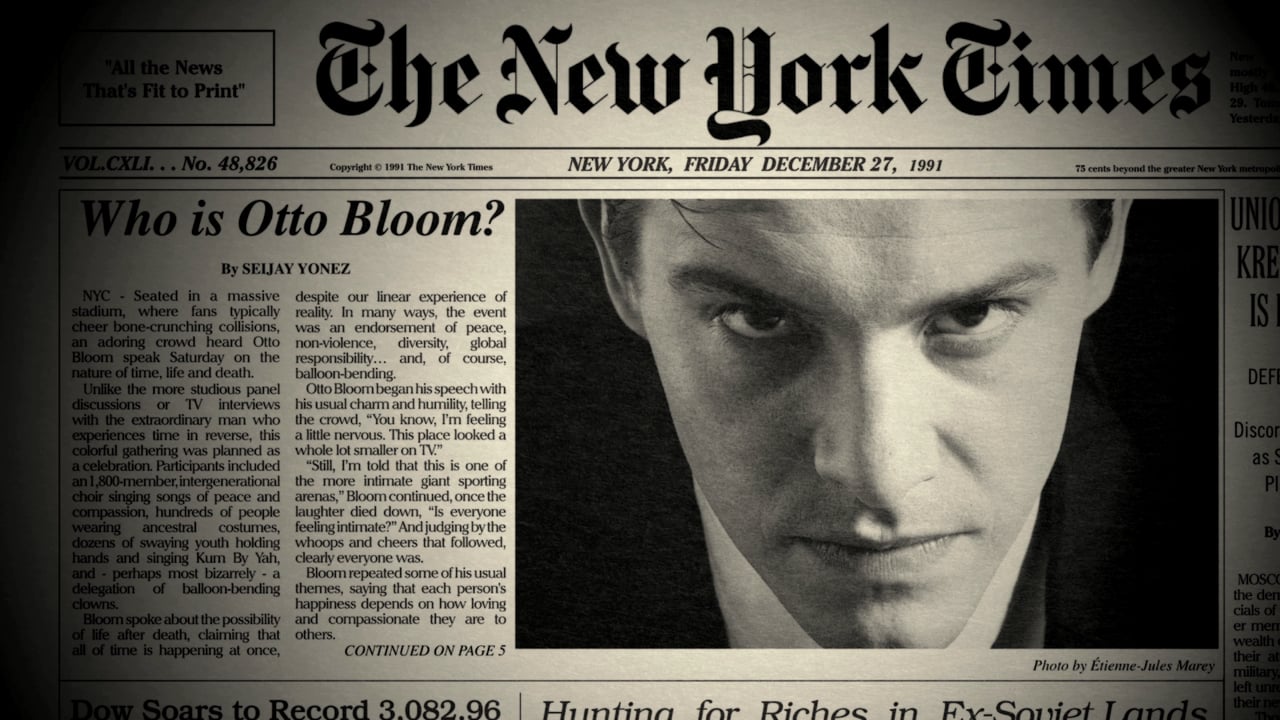Xavier Samuel, Matilda Brown, Rachel Ward
FilmInk rates movies out of $20 — the score indicates the amount we believe a ticket to the movie to be worth

…an astute, ambitious offering that understands that, while production value may be expensive, ideas are free…

Otto Bloom (Xavier Samuel) is a man like no other – he perceives time in reverse, remembering what we think of as the future but unable to perceive what we know to be the past. Through archival footage and talking head interviews we follow the course of his unusual life as he becomes a cult figure in the public eye, entrancing the masses and earning the love of the neurologist (Rachel Ward in the interviews, her daughter Matilda Brown in flashback footage) tasked with seeing if he’s on the level.
The debut feature from writer/director Cris Jones is certainly clever – the very idea of dealing with twists in time as perceptual rather than physical reality means that Jones is able to realise his vision on a comparatively low budget while keeping his premise fairly watertight – the film’s internal logic is rigorous and well-realised.
Thanks to the mockumentary structure we’re kept at arm’s length from Bloom’s subjective experiences, and that’s probably for the best; it’s one thing to be told that someone experiences time backwards, it’s another to try and get the audience to feel it. Samuel affects a strange kind of ethereal blankness for the role, a knowing innocence that lends credence to the notion that he’s seeing things in a way we can’t. There’s something Bowie-esque in his mannerism and the adoration his fans hold him in, and that’s certainly no mistake – The Man Who Fell to Earth is definitely a touchstone here.
For all that Bloom is the film’s philosophical and narrative focus, Ada, the character played by Ward and Brown, is its emotional centre, and it’s the notably strong performances the two bring to the party that really engage. It’s particularly great to see Ward on screen again (it’s been nine years between drinks) as she almost effortlessly embodies a wistful, philosophical sadness and regret as she narrates her relationship with the film’s central enigma.
Still, Otto Bloom isn’t faultless; there are times when you can see the budgetary seams straining even with Jones’ thoughtful compositions and scene construction (and if you know your way around the University of Melbourne, some of the exterior scenes are bound to look familiar). There’s a tendency towards pretension at times, which is perhaps unavoidable when you’re navigating this kind of conceptual territory, plus a habit of over-explaining some of the core metaphysical concepts that shows a lack of faith in the audience’s ability to pick up what the film is putting down.
Those are fairly forgivable lapses, though, especially for a first feature. The Life and Death of Otto Bloom is an astute, ambitious offering that understands that, while production value may be expensive, ideas are free, and it certainly doubles down on the latter. Cris Jones is going to be worth remembering in the future.






